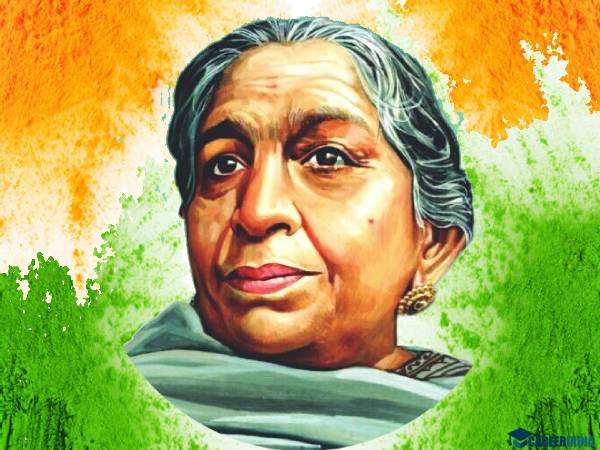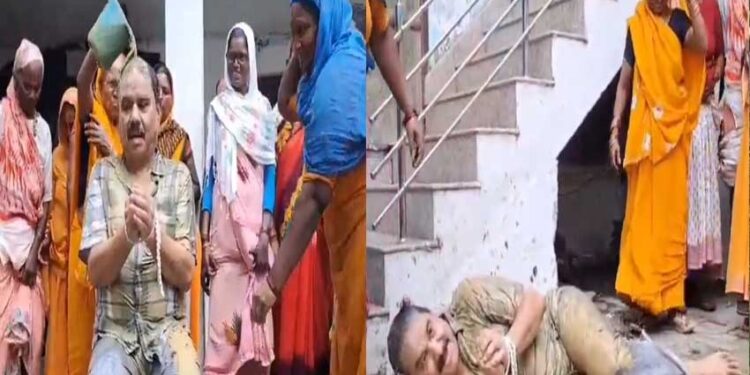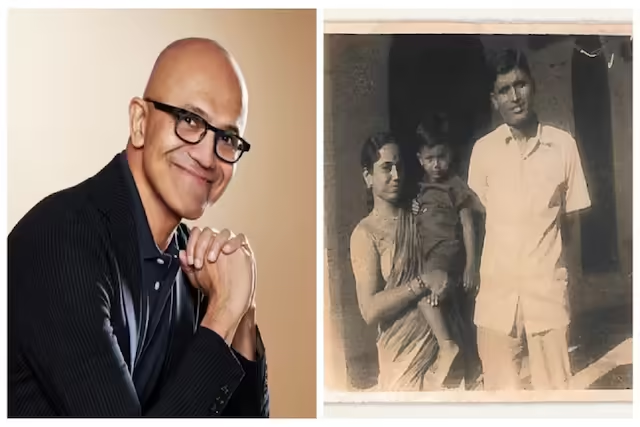Sahitya News Desk !!! Sarojini Naidu (English: Sarojini Naidu, born- 13 February, 1879, Hyderabad; death- March 2, 1949, Allahabad) was a well-known poetess and one of the best national leaders in India. She was always ahead in India’s freedom struggle. His fellow companions used to get power, courage and energy from him. Youth power was inspired to move forward with them. He composed a poem called Lady of the Lake at the age of 13 due to sharp-intellect since childhood. She went to England to get higher education in 1895 and continued to write poems along with studies. Golden Thrashold was his first poetry collection. His second and third poetry collection Bird of Time and Broken Wing made him a well -known poetess.
‘We do labor
That the sea is a moment of awakening
Done awakening
Now look, how bright the day was. ‘
These lines are from a poem by Sarojini Naidu, which he wrote while addressing his motherland.
Life introduction
Sarojini Naidu was born on 13 February, 1879 in Hyderabad. She was the eldest of the eight children of Aghornath Chattopadhyay and Varada Sundari. Aghornath was a scientist and educationist. He also used to write poetry. Mata Varada Sundari also used to write poetry. Like his poet Bhai Harindranath Chattopadhyay, Sarojini also received the talent of poetry from her parents. Aghornath Chattopadhyay was the founder and chemical scientist of ‘Nizam College’. He wanted his daughter Sarojini to be proficient in English and mathematics.
Literary introduction
Sarojini Naidu stayed in England for two years during her education, but the prestigious litterateurs and friends of there praised her a lot. His friends and fans were also ‘Edmund Gauss’ and ‘Arthur Simmons’. He advised Kishore Sarojini to bring seriousness in his poems. She continued to do poems and writing work for almost twenty years and at this time, three of her poems were published. His poetry collections ‘Bird of Time’ and ‘Broken Wing’ made him a famous poetess. Sarojini Naidu was being considered as the established poetess of Indian and English literature, but she did not consider herself a poet.
political life
Sarojini Naidu had worked with Gandhiji in South Africa before stepping into the country’s politics. Gandhiji was fighting against the ethnic government there and Sarojini Naidu supported him as a volunteer. After returning to India, she immediately joined the national movement. From the very beginning, she was loyal to Gandhiji and the Indian National Congress. He gave speeches in the meetings of students and youth. Addressed women and general meetings in many cities and villages. Sarojini Naidu’s health has never been good. But his morale was firm. She continued to work with enthusiasm and enthusiasm, not in puberty, but even when she was older. Seeing this, everyone used to be amazed. His colleagues and fans were surprised as to where he got such an invincible power.
Contribution to freedom struggle
In fact, Sarojini Naidu was one of the volunteers running with Sarojini Naidu Gandhi in the 1930s of 1930. After the arrest of Gandhiji, she continued to operate the movement until she was arrested by picketing the salin-platte in Dharsana in Gujarat. Dharasana was the place where the police had severely tortured peaceful and non -violent satyagrahis. Sarojini Naidu faced the situation with great courage and kept the atmosphere alive with his unmatched humor. Salt Satyagraha was finished. The Gandhi-Irwin agreement was signed by Gandhiji and India’s Viceroy Lord Irwin. This was a political agreement. Later Gandhiji was invited to visit the second Round Table Conference to be held in London in 1931. In this, constitutional reforms were going to be discussed keeping in mind the demand for self-governance of India. At that time, Sarojini Naidu was also one of the many people attending the conference with Gandhiji. The Act of the Government of India of 1935 gave India some constitutional rights. After a long debate, the Congress agreed to enter the provincial assemblies of the country. He fought the electoral and formed his governments in most of the provinces of the country, which were named interim governments.
Bold personality
Sarojini Naidu had never known fear nor disappointment came near him. She was a symbol of courage and boldness. Who would not know about the murder in Jallianwala Bagh in 1919 in Punjab. Hundreds of male and women who had gathered in protest against the ban imposed by General Dyer on general meetings were mercilessly murdered. Anyway, there was already a lot of stress in the country due to the passage of the Rowlatt Act. This act had allowed the judge to decide political cases without any advocacy and to imprison suspicious politicians without any legal action. Anger erupted throughout the country over the Jallianwala murder case. Gurudev Rabindranath Tagore had a fierce response to that best atrocities and returned the title of his ‘Night Hood’. Sarojini Naidu also returned her ‘Kaiser-e-Hind’ title which was given to her some time ago for social services. She was one of the early volunteers who signed a pledge of freedom at Gandhiji’s Sabarmati Ashram in Ahmedabad. Gandhiji initially did not want women to actively participate in Satyagraha. Gandhiji wanted to limit his tendencies to spinning, indigenous, picket at liquor shops etc. But in view of the insistence of Sarojini Naidu, Kamala Devi Chattopadhyay and the main women of the country, she had to change her opinion.
Postage stamp in memory
On February 13, 1964, the Government of India also ran a postage stamp of 15 new money in his honor on the occasion of his birth anniversary. The country gave great respect to this great patriot. Sarojini Naidu will always be remembered as ‘Bharat Kokila’, ‘National leader’ and ‘supporters of women’s liberation movement’.
Death
When Sarojini Naidu died on 2 March 1949, she was at the post of Governor at that time. But that day only death died. In one of his poems, he asked death to stay for a while …..
The apps of my life will not be erased until
Do not come to death, ever you.
His life was beneficial and perfect. No one can tell whether he had gained self -consciousness from that life or not, but he can definitely say that she had given a purpose to her life and she lived accordingly. . Many people do not have such life. She kept making efforts to erase the ‘sadness of life’ with the sadness of the song. Similarly, he spent life. The future generations will continue to remember them in this form. This is the only way to remember them- ‘Sarojini Naidu who won for love and song.’ As Gandhiji said, she was a ‘Bharat Kokila’ in the true sense.






